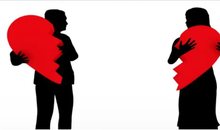
 Flash News
Flash News
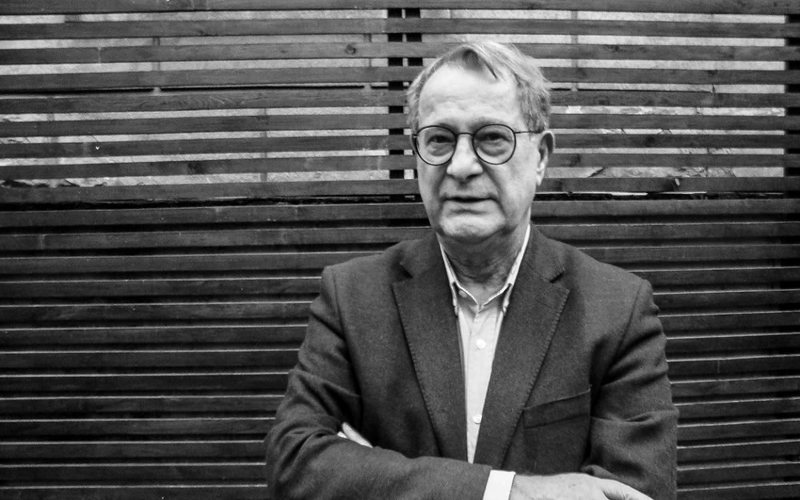
Boshko Jakshic / Politika
Is the announcement of "deep and fundamental" changes in Serbia's foreign policy just an empty promise given at a time of diplomatic impotence to prevent Kosovo's entry into the Council of Europe, or is it instead an affirmation of the continuation of the practice of old politics according to which the only filter in the selection of international allies is the relationship to Kosovo?
Belgrade is very offended that at the summit of the oldest European organization dedicated to human rights, democracy, and justice, Serbia's amendment was not accepted to add to the text of the declaration in which respect for the territorial integrity of Ukraine, Moldova and Georgia has also mentioned the sentence "as well as all other members of the Council of Europe." It seems something noble, but it should have been clear that such a supplement was unacceptable when the summit, with an overwhelming majority, announced the procedures that will make Kosovo a member of the Council of Europe. Although aware of this reality, as well as the obligations accepted in Brussels that it will not hinder Kosovo's membership in international organizations, Aleksandër Vučiči refused to go to Reykjavík.
Well, it was the fourth summit in 74 years since the formation of this organization and the first since Russia, due to the aggression of the previous year, was excluded from being a member, the summit previously dedicated to solidarity with Ukraine. When it was voted about the formation of the register of damages and compensation for the victims of Russian aggression, 40 out of 46 members of the Council voted "for." Serbia chose to be among the six "abstainers" alongside Bosnia and Herzegovina (due to Republika Srpska), Hungary, Turkey, Armenia, and Azerbaijan. The West criticizes all these countries because of their impermissible closeness to Vladimir Putin's regime.
As if this self-isolation was not enough, Belgrade declared that it was thinking about the possible abandonment of the Council of Europe. Is Serbia choosing to go back to Milosevic times? Exclude himself from the world of liberal values and move into the society of the outcasts? All this is happening when the West declares that it has zero tolerance for those who have doubts in the duel between the world of democracy and autocracy.
The harsh words towards Serbia and its President that were expressed in the hearing session of Derek Sholli, adviser to the Secretary of state, and Gabrijel Escobar, deputy assistant secretary of state and special envoy of the USA, are not something extraordinary. in the Balkans, before the Senate committee on foreign policy.
"Vučić continues to have a Serbian nationalist narrative. He wants great Serbia as much as Putin wants great Russia", concluded the chairman of the commission, the Democratic Senator from New Jersey, Bob Menendez, in this session, in which the descriptions from the "New York Times" article on the connections of the Serbian government with the criminal world. The senator asked what the chances are we can consider Serbia, a reliable partner. Sholl replied: "We have to test this. We keep our eyes open; we call on President Vučić and his colleagues for responsibility regarding corruption and other activities".
At the moment when it has just begun to improve relations with the United States and to present itself as a constructive partner regarding the European plan for the regulation of relations with Kosovo, Serbia is again under test. At the same time, Belgrade persistently continues to oscillate between East and West. How sustainable is this position?
His words also cause additional doubts about Vucic's intentions that he received information from foreign services according to which the "Serbia against violence" protests are attempts at an orange revolution. Calling them "sister services from the East," he said it all. Although it was clear that, in this case, it was only about Russia.
At the end of 2021, the then Minister of Internal Affairs Alexander Vulin and the Secretary of the Security Council of the Russian Federation Nikolai Patrushev, as it was claimed, in Moscow and secret, formed the "working group" for the fight against black revolutions, whose task was to prevent mass demonstrations and constantly monitor opposition activities, non-governmental organizations, and independent journalists.
How is it that Vučić thanks the "sisterly" care from Moscow? In the same way, as at that time, Russian President Recep Erdogan did, whom the Russians in 2016 announced at the last moment that a coup against him was being prepared. As a sign of thanks, Turkey, although a member of NATO, bought the Russian S-400 missile system after this moment. It was a "deep and fundamental" turn in Ankara's foreign policy. What about Belgrade now? The President reiterates that he remains loyal to the European course but has chosen to respond to accusations and suspicions against Belgrade aggressively.
"They will not direct Serbia's foreign policy. They cannot determine for me who I should impose sanctions on; it is the people who will decide whether Serbia will enter NATO; the people will decide this". Then he turned to the mother of all Serbian problems: "Do whatever you want abroad and here inside the country, I will not allow you to destroy Serbia. You will not take independent Kosovo." There is no doubt that the patriotic echo of these words is at the service of politics within the country, attempts to anathema the opposition and the declaration of protests "Serbia against violence" in a traitorous format of the "Serbia for sale" type. It is not the people who determine this.
Belgrade has entered the high-risk game of threatening the West with information from the secret services to secure a more favorable position in the talks on Kosovo. It tries to be neutral not only from the military side but also from the foreign policy side, even when it is evident that it is destroying all the balances.
Neutrality has been a legitimate choice in international relations since the victorious powers against Napoleon at the Congress of Vienna in 1815 granted this status to Switzerland. However, much has changed since then. Neutrality is today a less and less desirable position for the West. In the European Union, neutrals hinder the EU's efforts to develop a standard defense policy and strengthen security through NATO's guarantee.
This concept is dear to Russia, which has been supporting it for years as a mechanism to protect and preserve its sphere of influence. When it fails to do so, it resorts to military intervention. First in Georgia, after the "orange revolution" in Kyiv, and also in Ukraine. Many think that Serbia, after declaring its vague military neutrality in 2007, was following instructions from Moscow and that this was part of the price for Russian support for Kosovo.
The entry of Finland and Sweden into NATO leaves Europe with four neutral states: Austria, Ireland, Malta, and Switzerland, but all of them are "neutral on the side of the West," as Winston Churchill said. If Serbia chooses to be "neutral on the side of the East," then this is the capital betrayal of its geostrategic determination towards the West announced by itself.
The first symptoms of the "big and fundamental" changes in the orientation of Serbia's foreign policy - from the threat of leaving the Council of Europe to the reliance on "information from the sister services" - seem disturbing.
Belgrade should abandon its neutrality as soon as possible, which changes like the seasons of the year, bringing more harm than good to the country.
Latest news


Two vehicles collide on the Elbasan-Peqin axis, drivers injured
2025-07-05 19:26:29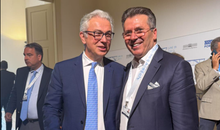

What does Zelenskyy have more than Zegjineja?
2025-07-05 18:45:26

Fiscal peace, but at a cost
2025-07-05 18:00:10
'Bankers' tax evasion, Chinese CEO and former director jailed
2025-07-05 17:39:21
Kyle Walker joins English club on two-year deal
2025-07-05 17:20:24
Two cars collide on the Saranda-Delvina axis, 4 injured
2025-07-05 17:05:29
Touching gesture! Liverpool will pay Jota's family's salary until 2027
2025-07-05 16:45:18
The zodiac signs that cheat most often
2025-07-05 16:25:53

"I asked for the dismissals", Dredha tries to soften Rama's 'blow' in Vlora
2025-07-05 15:48:49
Bomb threat in Parliament, prosecutor: It was a lie
2025-07-05 15:22:28

Bardhi: The recount revealed how greedy Zeqine Balluku is in stealing
2025-07-05 14:44:29
Knife wound on the secondary road Tirana-Durrës, perpetrator sought
2025-07-05 14:37:54
Tears and pain, Diogo Jota is escorted to his final home
2025-07-05 14:21:34
Success starts with yourself! Simple ways to invest in personal development
2025-07-05 13:58:50
Unlicensed firearms found in apartment, 50-year-old arrested in Lushnje
2025-07-05 13:43:11

Tirana Court remands Skerdi Sina to prison
2025-07-05 12:59:34
Cocaine laboratory in Greece, here are the Albanians arrested and wanted
2025-07-05 12:40:16
Directed Justice/Vangjeli: SPAK does not investigate any scandal involving Rama
2025-07-05 12:22:03

Bomb alert, Police remove MPs and media from Kosovo Parliament building
2025-07-05 11:48:16
"The will of the people" and the irony of ordered resignations
2025-07-05 11:32:05
Summer drowning risk: How to enjoy the water without risking your life
2025-07-05 11:20:27
Fire situation in the country, 16 fires reported in 24 hours, 4 still active
2025-07-05 11:07:04
Car hits pedestrian at white lines, injured in serious condition in Vlora
2025-07-05 10:59:58
Mosquito-borne diseases are a growing problem in Europe
2025-07-05 10:44:13



One of Sweden's most dangerous and wanted criminals arrested in Turkey
2025-07-05 09:38:29
Foreign exchange/ How much foreign currencies are bought and sold today
2025-07-05 09:18:38

"Don't be influenced by the opinions of others", today's horoscope
2025-07-05 08:40:50

Morning Post/ In 2 lines: What mattered yesterday in Albania
2025-07-05 08:02:07

Trump says he's ready to raise tariffs to 70% on some countries
2025-07-04 22:35:52
Tre shenjat e zodiakut që do ‘pasurohen’ në Korrik
2025-07-04 22:05:09
Gaza War: Hamas Accepts US Proposal for 60-Day Ceasefire
2025-07-04 21:50:10
Autocracy in Albania, Fuga: Governance has gotten out of control
2025-07-04 21:40:51
Meta: Agriculture on credit, the new fraud!
2025-07-04 21:26:39




Vote recount in Durrës ends without changes
2025-07-04 20:12:54
Gas station explodes in Rome, 25 injured (VIDEO)
2025-07-04 20:00:20

These afternoon habits often sabotage weight loss
2025-07-04 19:39:28
Former Arsenal player Thomas Partey accused of rape
2025-07-04 19:24:21
Shepherd disappears without a trace in Delvina
2025-07-04 19:14:31

Bardho gave Zegjine's mandate/Braho: Unfair! It violates the electoral system
2025-07-04 19:01:08


Rapid developments in the Sultanates!
2025-07-04 18:00:06



Italy tightens rules for skateboard traffic
2025-07-04 17:20:18

Unusual for the time, dense fog covers the coast of Vlora
2025-07-04 16:48:01


Accident on the Shkodra-Lezhë axis, one dead and 3 injured
2025-07-04 16:14:19
Albania with fewer requests for asylum and Albanian citizenship in 2024
2025-07-04 16:06:57

Albania last for quality of life, DP: Technical government is the solution!
2025-07-04 15:42:30
Nico Williams says "No" to Barcelona, signs with Athletic Club until 2035
2025-07-04 15:33:35
Fires in the country, four fires are still active, what is the situation?
2025-07-04 15:24:20

Summer brings big changes for these 4 zodiac signs
2025-07-04 15:00:04
Osmani: MPs need to agree to a secret ballot for the Speaker of Parliament
2025-07-04 14:51:09
Serious accident on the Peqin-Elbasan axis, two injured
2025-07-04 14:37:56

GJKKO leaves in force the security measure for the head of the KPP
2025-07-04 13:58:17
Who will replace Ilir Meta and take over the leadership of the PL?
2025-07-04 13:50:36
Berisha: Dismissal of directors in Vlora, another act of 'scapegoats'
2025-07-04 13:41:46




Librazhd/ In a serious psychological state, the young man consumes pesticides
2025-07-04 13:05:07


Weapons trafficked from Kosovo to Albania, two arrested, 8 pistols seized
2025-07-04 12:33:28
Konsumimi i tepërt i çokollatës, ja cilat janë dëmet që shkakton në organizëm
2025-07-04 12:23:35

Fires in the country, 21 fires in the last 24 hours, 4 still active
2025-07-04 12:00:19
WB calls for debt transparency: Albania to publish details of every loan
2025-07-04 11:50:05
Changes in the State Police, new names expected to lead 5 police stations
2025-07-04 11:40:06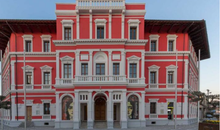
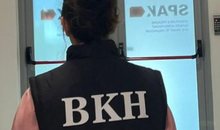
The race for the head of the BKH, the third phase on July 11
2025-07-04 11:20:23
